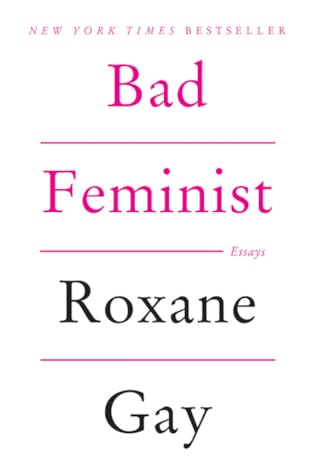More on this book
Community
Kindle Notes & Highlights
In the world of the Internet, no one is alone in his or her interests.
So many of us are reaching out, hoping someone out there will grab our hands and remind us we are not as alone as we fear.
The notion that I should be fine with the status quo even if I am not wholly affected by the status quo is repulsive.
Shame on me, certainly, for being so ignorant about the galling disparities in how children are educated. Shame on me.
I was expected to get straight As. Bringing home a grade less than an A was not an option so I didn’t. This is a typical child-of-immigrants
It wasn’t that they were embarrassed to get help, most of the time. They were embarrassed to be seen putting effort into their education, to be seen caring.
I sit with my colleagues and think, Please like me. Please like me. Please like me. Please respect me. At the very least, don’t hate me. People often misunderstand me, misunderstand my motivations. The pressure is constant and suffocating.
It was hard for a child to begin to grasp the contrast of such inescapable poverty alongside almost repulsive luxury, and then the United States, a mere eight hundred miles away,
Privilege is a right or immunity granted as a peculiar benefit, advantage, or favor. There is racial privilege, gender (and identity) privilege, heterosexual privilege, economic privilege, able-bodied privilege, educational privilege, religious privilege, and the list goes on and on. At some point, you have to surrender to the kinds of privilege you hold. Nearly everyone, particularly in the developed world, has something someone else doesn’t, something someone else yearns for.
We tend to believe that accusations of privilege imply we have it easy, which we resent because life is hard for nearly everyone.
To have privilege in one or more areas does not mean you are wholly privileged. Surrendering to the acceptance of privilege is difficult, but it is really all that is expected. What I remind myself, regularly, is this: the acknowledgment of my privilege is not a denial of the ways I have been and am marginalized, the ways I have suffered.
I was not the kind of girl who cared much about pageants or being a beauty queen, but watching Williams and her perfect cheekbones and glittering teeth as she accepted the crown gave girls like me ideas. That moment made us believe we too could be beautiful.
As a black girl, as a Haitian girl, I was not supposed to see myself in the Sweet Valley High books, but I did.
The book reminded me of the solace, escape, and quiet joy I found in Sweet Valley. Some experiences are universal. A girl is a girl whether she lives in West Omaha or Sweet Valley. Books are often far more than just books.
We hold all people to unspoken rules about who and how they should be, how they should think, and what they should say. We say we hate stereotypes but take issue when people deviate from those stereotypes. Men don’t cry. Feminists don’t shave their legs. Southerners are racist. Everyone is, by virtue of being human, some kind of rule breaker, and my goodness, do we hate when the rules are broken.
“Maybe it’s a fact we all should face / Everyone makes judgments based on race.”
There is a complex matrix for when you can be racist and with whom. There are ways you behave in public and ways you behave in private. There are things you can say among friends, things you wouldn’t dare say anywhere else, that you must keep to yourself in public.
Most people are familiar with these rules. We suspect that everyone is, indeed, a little bit racist. It’s often not a question of if someone will reveal his or her racism to whatever degree but, rather, when. Or maybe it’s people of color who are familiar with these rules and willing to acknowledge they exist. Maybe it is people of color who wait, without bated breath, for that when.
I truly had no idea what to say, and then she leaned in to me and whispered, “You know how those people are.”
This was one of those rare moments in which I got to see the rules of racism in action in a multiracial context. A white person felt comfortable confiding in me. In that moment, we were an us conspiring against a them.
I wasn’t interested in playing that game where we bond as we reveal our racist secret selves to each other. Later, I felt guilty I hadn’t used that moment to educate this stranger about race-based generalizations. I wondered why she thought she could reveal that casual racism in mixed company. I wondered, as I often do about people, what she truly thinks about me.
feminists are “just women who don’t want to be treated like shit.” This definition is pointed and succinct, but I run into trouble when I try to expand that definition. I fall short as a feminist. I feel like I am not as committed as I need to be, that I am not living up to feminist ideals because of who and how I choose to be.


